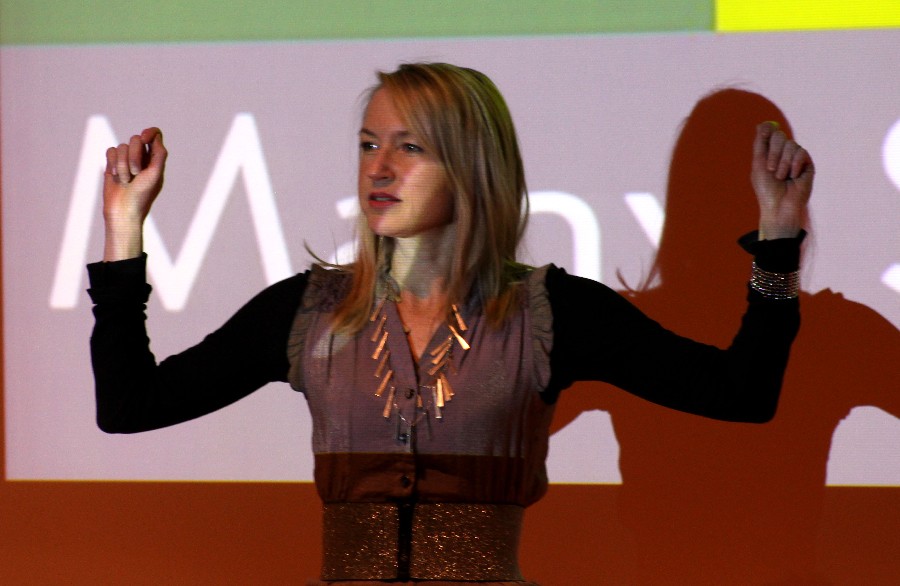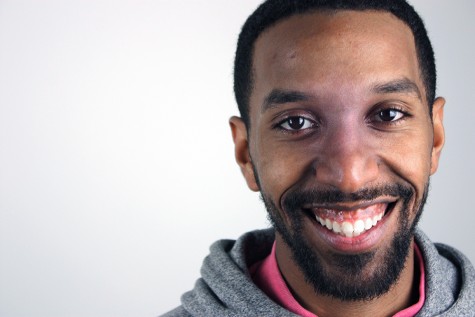Professor reads, discuss poems at Doudna
Eastern professor Charlotte Pence speaks on her book in the Doudna Fine Arts Center Thursday in Doudna’s lecture hall. Pence read poems that were published in her new book.
February 20, 2015
The audience was quiet and attentive as Caleb Curtiss and Charlotte Pence read from their poetry collections Thursday night in the Lecture Hall at the Doudna Fine Arts Center.
Curtiss, a teacher and poet from Champaign, read from his chapbook “A Taxonomy of the Space Between Us.”
His work has appeared in the New England Review and Literary Review, among other places.
He also co-organizes the Pygmalion Literary Festival.
Curtiss said he had never read from his chapbook before.
“I might fumble a lot, but I’m not going to apologize for it because we’re all learning,” he said.
Curtiss started out the evening by reading several poems not from his chapbook.
“We cleave one space into another, opening here, closing there,” he said, reading from his poem “Cleave.”
He also read from a poem of his called “Post.”
“When is it that conquest becomes accomplishment?” he read.
Many of his poems dealt with the loss of his sister.
“My sister is not a woman, a girl, or even a real someone or something, not anymore,” he read from his poem “Sparrow.”
He said that the death of his sister was an important event in his life, and something that was necessary to write about.
“Writing helped me understand part of something I had previously not understood,” he said. “When you experience something you don’t understand, normal language fails.”
He said textured, artfully arranged language provided him a meaning beyond the meaning of words.
Curtiss spoke at the reading about the various odd jobs he had, such as being a bartender and a social worker.
“I did good things, maybe some bad things,” he said.
He encouraged students in the audience to take advantage of the resources they have.
“I would be lost without the help of my professors,” he said.
He said he has not seen some of the poems he read in years.
“I’m kind of getting to know them again,” he said.
His last poem called “Dream” was in four parts.
“This time, you’re not my sister, this time you’re someone I don’t recognize,” he read.
In one of the poems, he picked up on the differences between himself and the person he was writing about.
“Blue for me, is red for you,” he said.
Curtiss explained his thought process in his poems.
“I think about my brain like it’s an algorithm a lot,” he said. “I don’t think it’s a good thing.”
After Curtiss, finished, Charlotte Pence, a poet and English professor at Eastern, read from her poetry collection, “Many Small Fires”.
This is her first full-length poetry collection after her chapbook “The Branches, the Axe, the Missing.”
Her poems dealt with both personal issues and scientific elements, such as her father’s schizophrenia.
For one poem, “The Argument,” she stood in the middle of the stage and portrayed both her and her father.
“The Argument” was the first poem she wrote about her father.
“When it came, I didn’t know what to do,” she said. “It was very uncomfortable to talk about it.”
Her father has been homeless since Pence was 18 and has paranoid schizophrenia.
It was her husband, who is also a writer, who said she had to write about it.
“He said you have to write about what you’re afraid to write,” she said.
In “The Argument,” her father questions Pence as a poet, while in ensuing poems, she explores questions regarding her responsibility as a poet.
Her poems also deal with her experiences traveling in Indonesia with her husband.
“That’s the way of searching, isn’t it?” she read. “We think we know before we know.”
She read a poem about happier times with her dad called “Diviner.”
“I don’t want a well,” she read. “I want what I have, a father who is a diviner.”
Pence said she did not initially see what her intention was when writing the poems.
“As it got going, I realized I was writing about myself,” she said.
Andrew McCue, a junior English major, said he came to the reading partly because Pence was one of his professors, partly because he was a fan of poetry, and that the reading was a more professional setting.
Ryan Brown, a senior English education major, agreed.
“I have one class with Dr. Pence. She is a great teacher, professor, and a great poet as well,” he said. “I have a great admiration for her and poetry in general.”
Matthew Minicucci, a poetry professor from the University of Illinois Urbana-Champaign, said he thought different things about each of the poets.
“Caleb Curtiss talks about loss in an extremely beautiful and honest way,” he said. “Charlotte Pence incorporates information, and all sorts of information, like she’s weaving in such a lovely way.”
Cassie Buchman can be reached at 581-2812 or cjbuchman@eiu.edu.

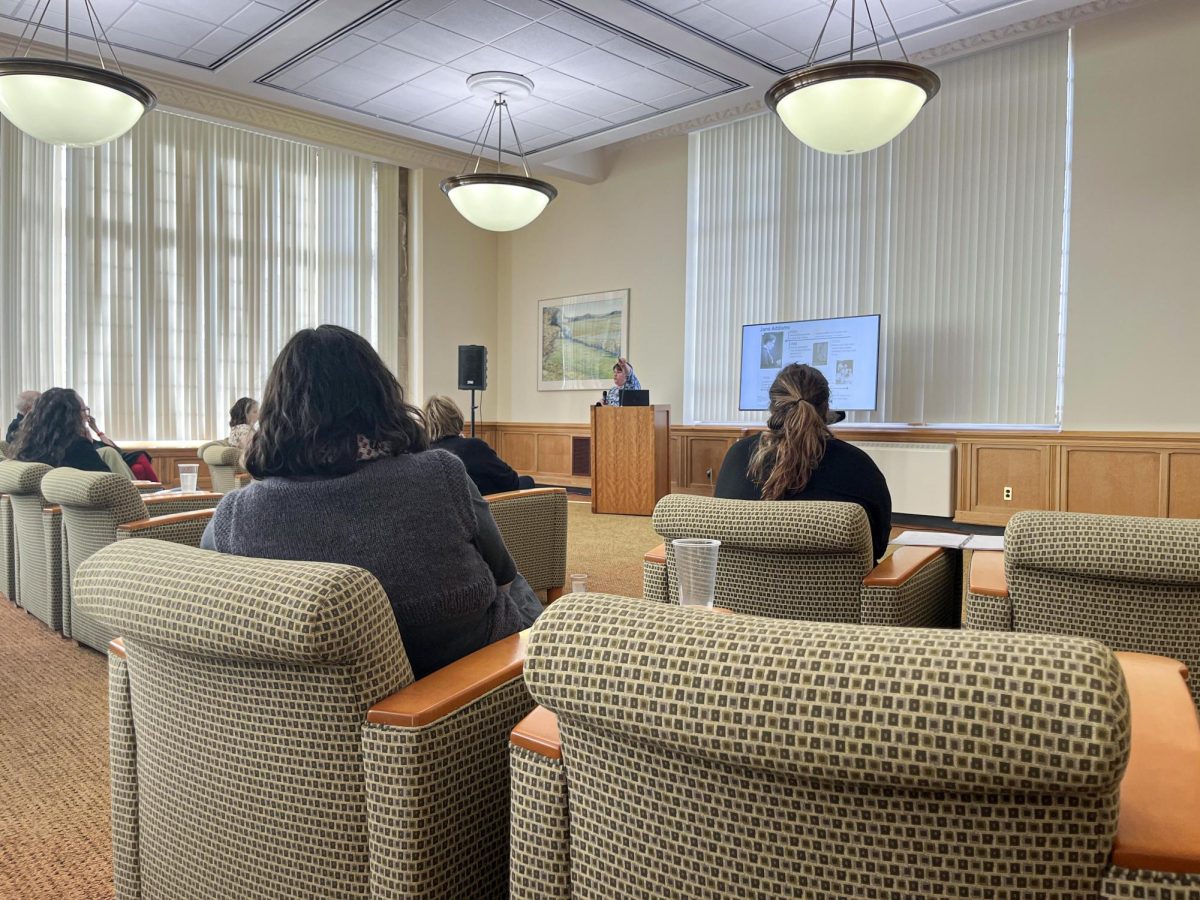


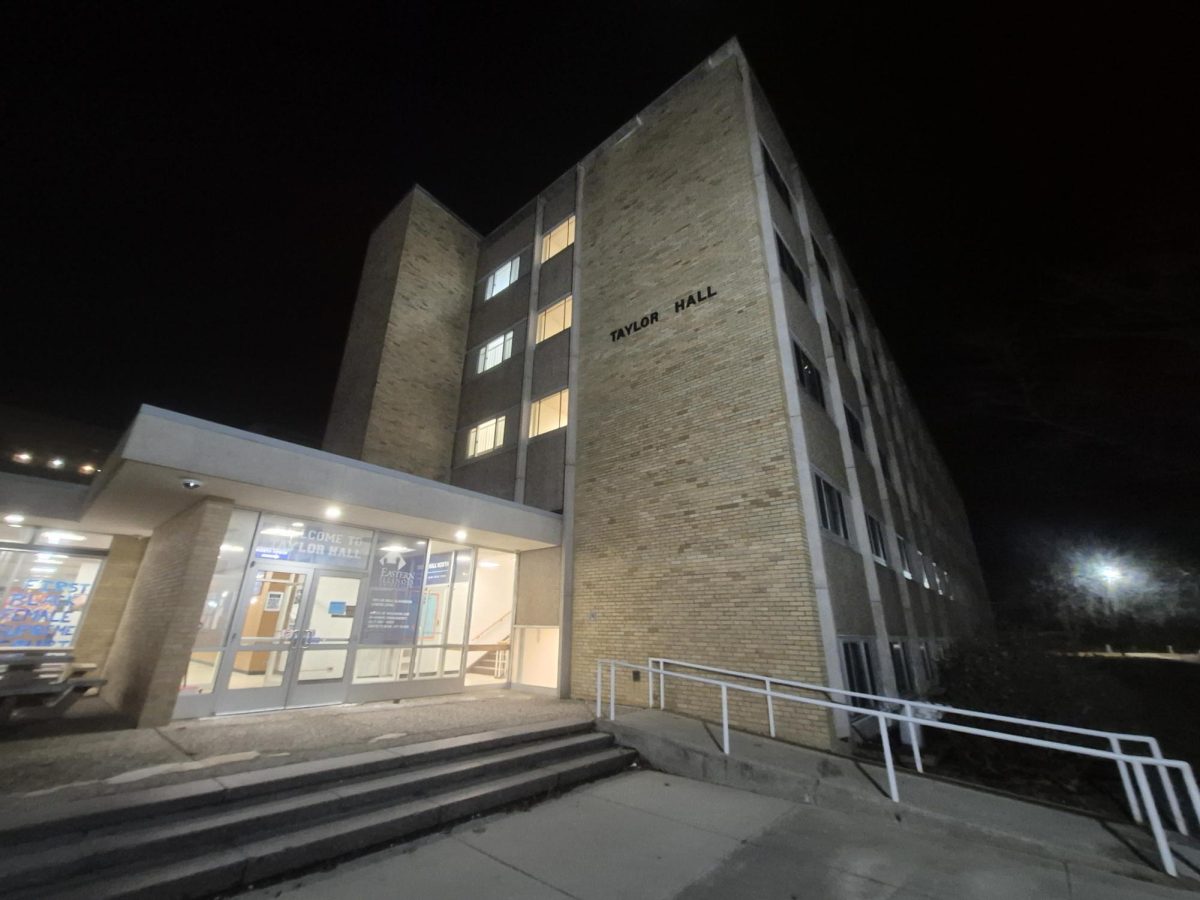
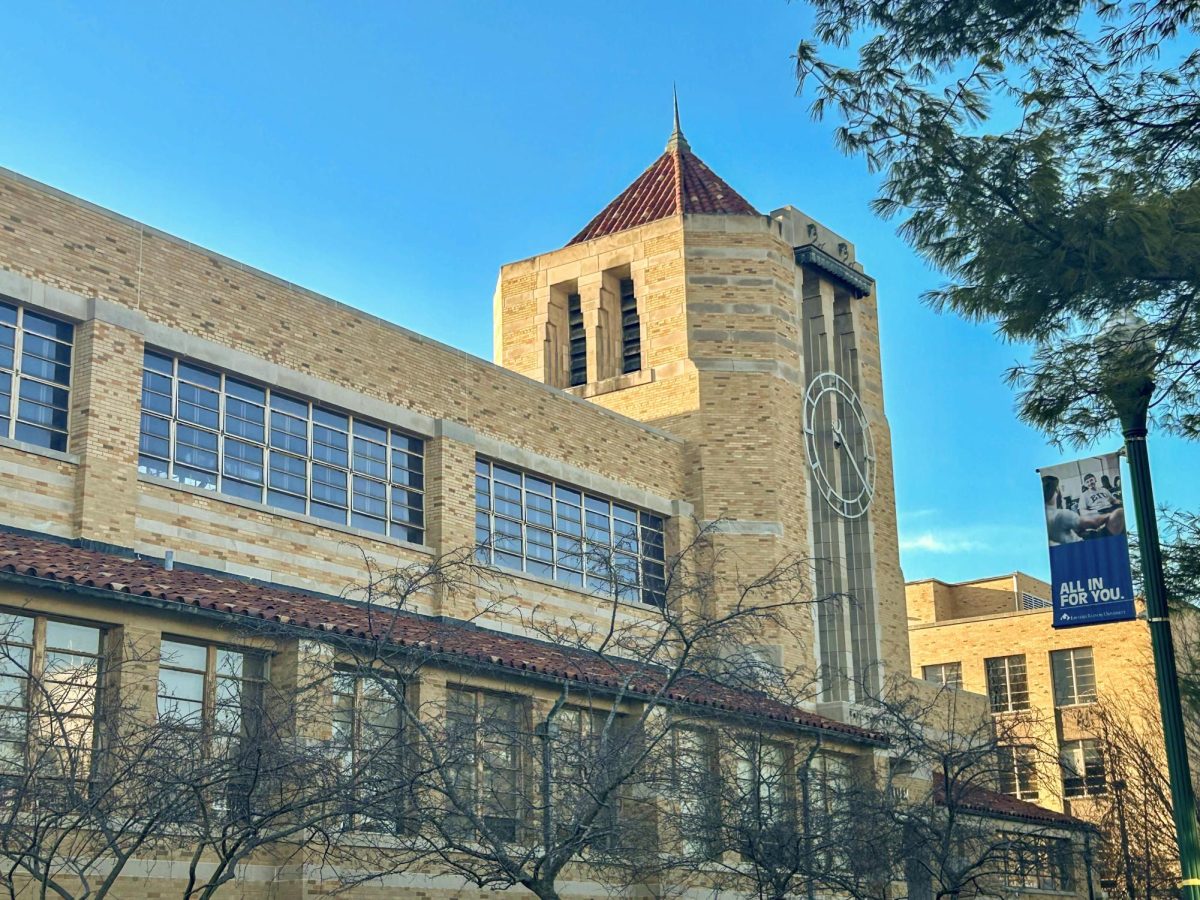
![[Thumbnail Edition] Eastern Illinois University baseball's hitting coach and recruiting coordinator Mike Pugliese urges players on the team to increase their effort after a slow start to its pregame routine at the team's first intrasquad scrimmage of the season at O'Brien Field on Jan. 31, 2025.](https://www.dailyeasternnews.com/wp-content/uploads/2025/03/BB_02_O-1-e1741909628540-1200x702.jpg)
![[Thumbnail Edition] Senior tennis player Luisa Renovales Salazar hits the tennis ball with her racket at the Darling Courts at the Eastern Illinois University campus in Charleston, ILL.](https://www.dailyeasternnews.com/wp-content/uploads/2025/03/Tennis_01_O-1-e1741807434552-1200x670.jpg)

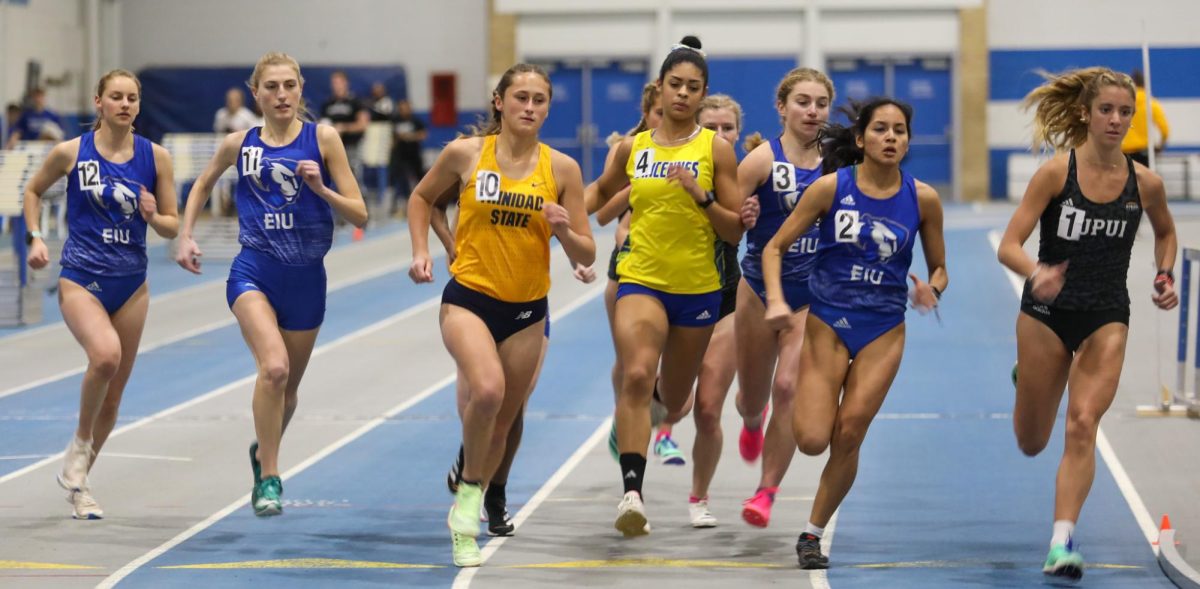
![[Thumbnail Edition] Senior right-handed pitcher Tyler Conklin pitching in the Eastern Illinois University baseball team's intrasquad scrimmage at O'Brien Field in Charleston, Illinois on Jan. 31.](https://www.dailyeasternnews.com/wp-content/uploads/2025/03/TC_01_O-e1741567955534-1200x669.jpg)

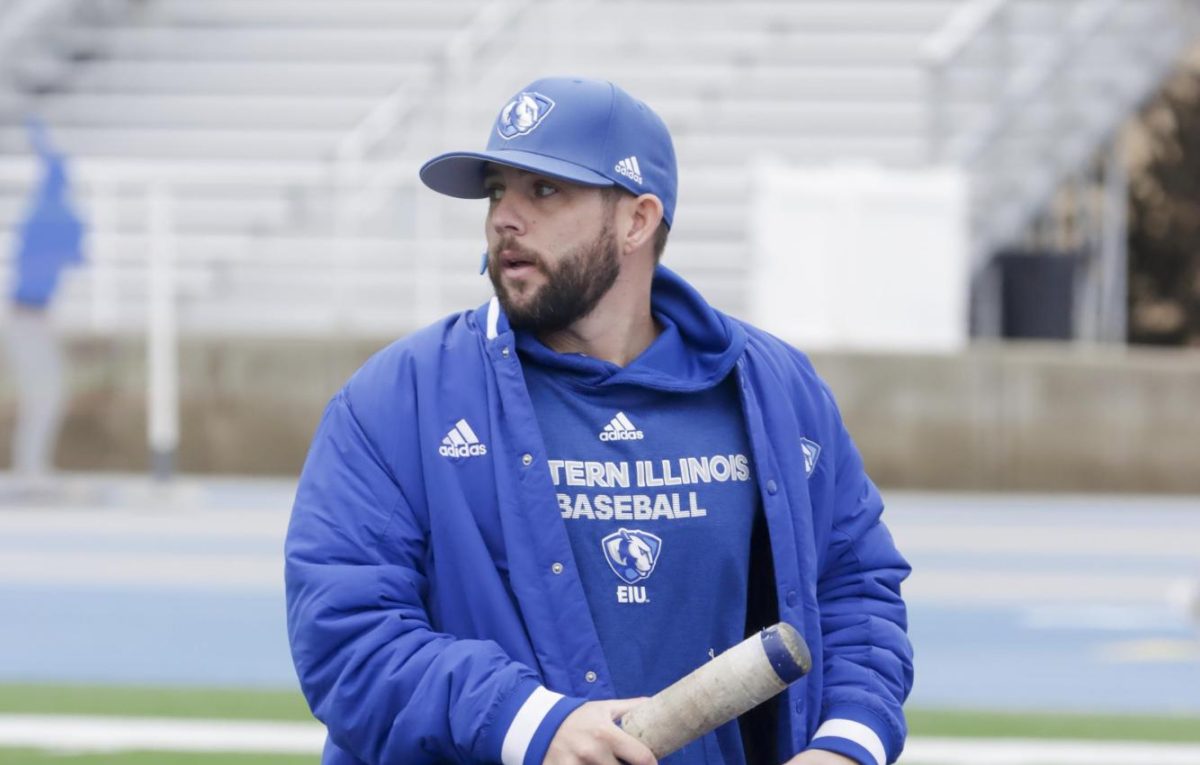
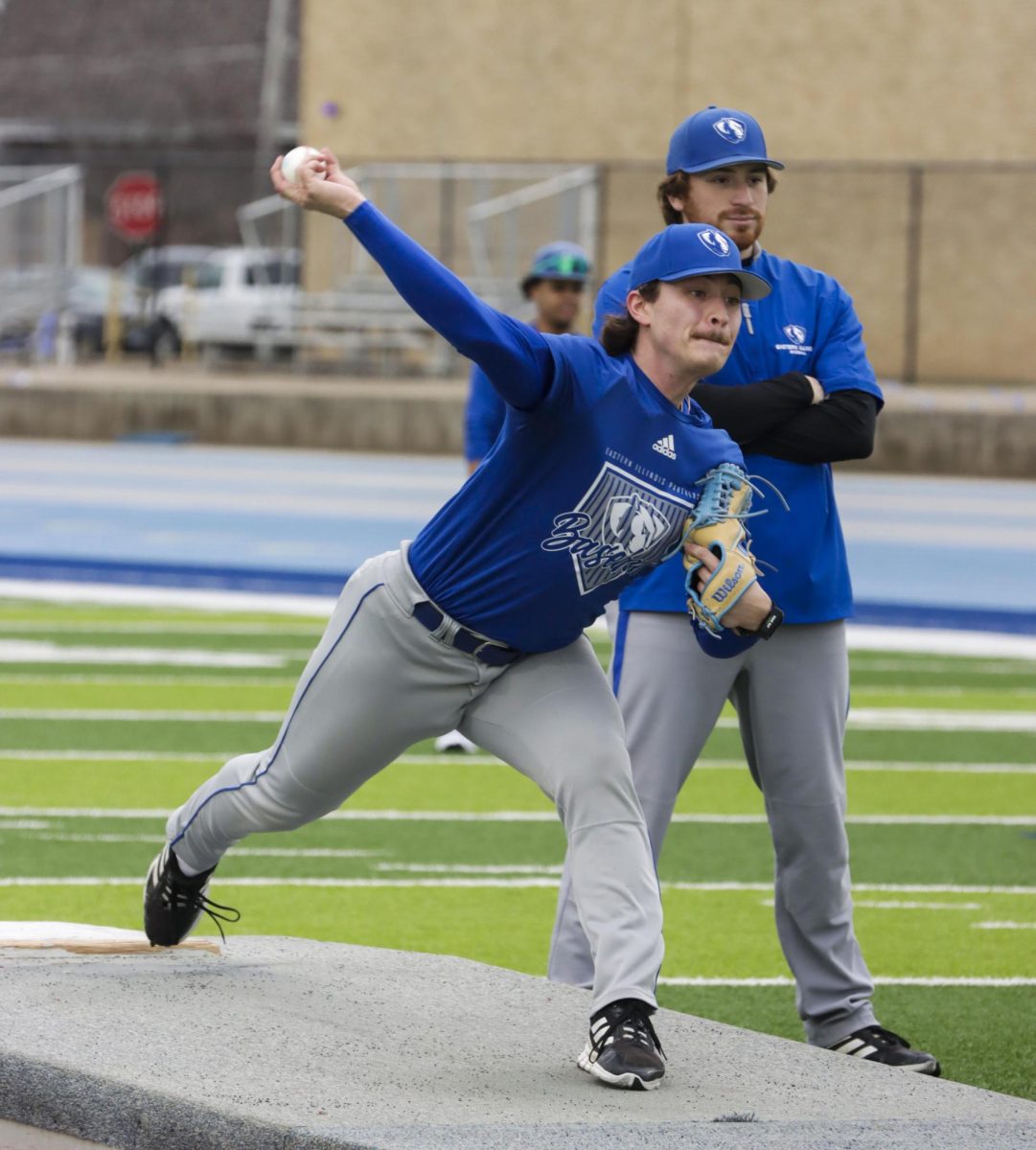


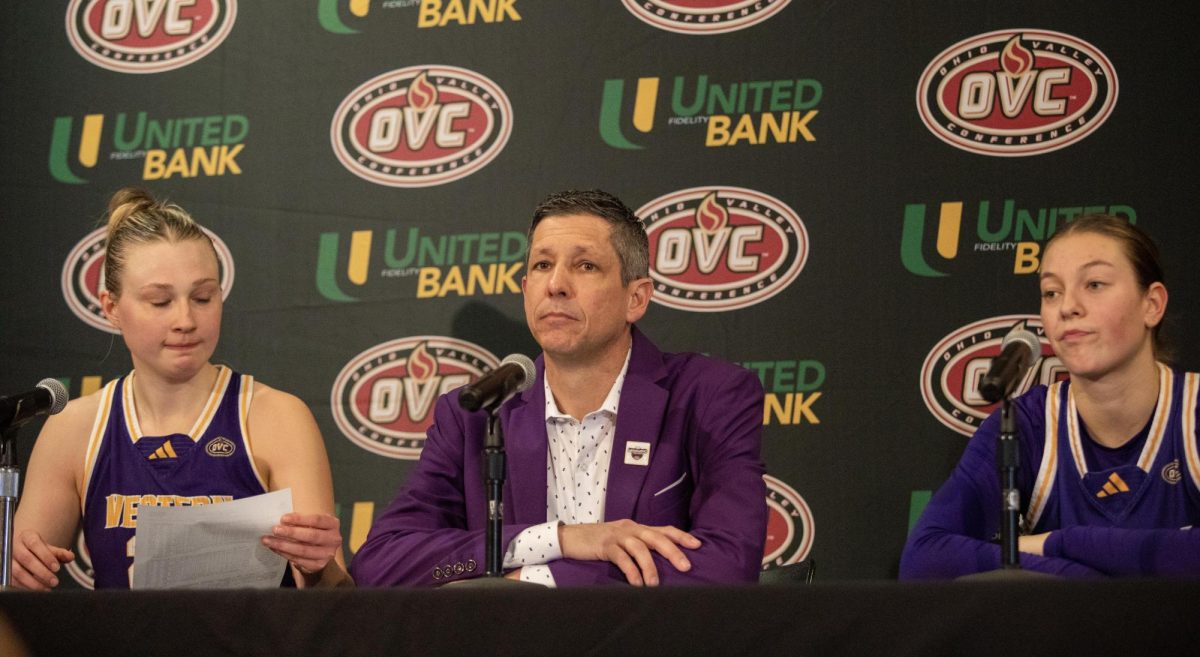
![[Thumbnail Edition] Senior, forward Macy McGlone finds an open teammate to pass the ball too during the game against the Tennessee State Tigers 69-49, in Groniger Arena on the Eastern Illinois University campus, Charleston Ill.](https://www.dailyeasternnews.com/wp-content/uploads/2025/03/WBB_02_O-1-e1741228987440-1200x692.jpg)


















![E[Thumbnail Edition] Eastern Illinois softball freshman utility player Abbi Hatton deciding to throw the softball to home plate in a fielding drill during softball practice at the field house in Groniger arena on Tuesday Feb. 11.](https://www.dailyeasternnews.com/wp-content/uploads/2025/03/SB_03_O-e1741208880750-1-e1741209739187-1200x815.jpg)

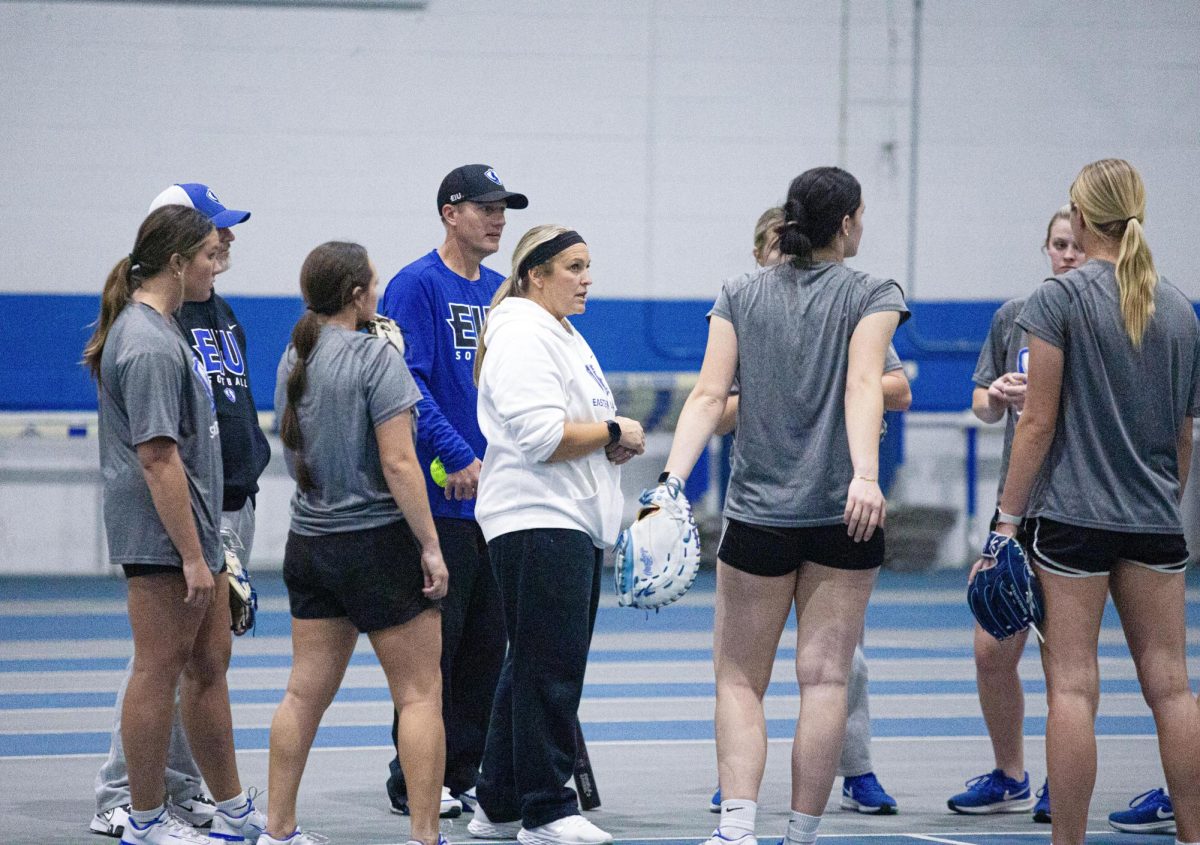
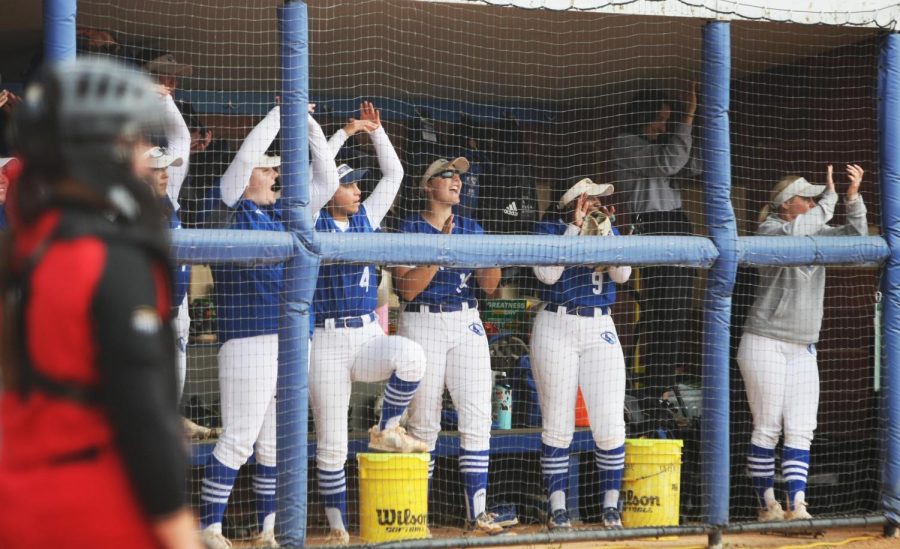













![The Weeklings lead guitarist John Merjave [Left] and guitarist Bob Burger [Right] perform "I Am the Walrus" at The Weeklings Beatles Bash concert in the Dvorak Concert Hall on Saturday.](https://www.dailyeasternnews.com/wp-content/uploads/2025/03/WL_01_O-1200x900.jpg)
![The team listens as its captain Patience Cox [Number 25] lectures to them about what's appropriate to talk about through practice during "The Wolves" on Thursday, March 6, in the Black Box Theatre in the Doudna Fine Arts Center in Charleston, Ill.](https://www.dailyeasternnews.com/wp-content/uploads/2025/03/WolvesPre-12-1200x800.jpg)
















